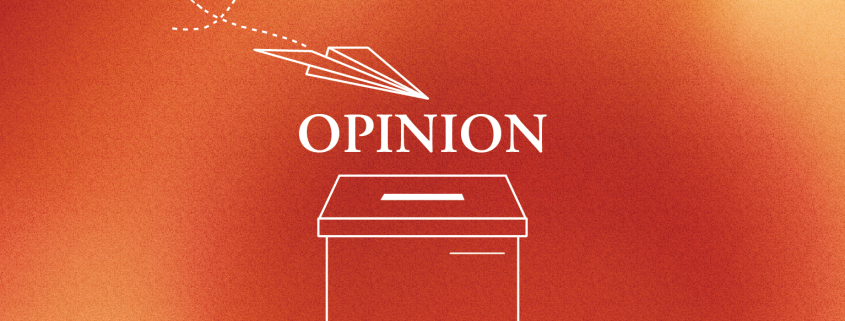Good Taste: The prodigal pizza returns
Sept. 15 will long be remembered as a day of celebration for the South Asian community. Around the country, Brown Americans flocked to Taco Bell to delight in the Mexican Pizza’s triumphant return.
To a community with a plethora of dietary restrictions and an affinity for spice, Taco Bell is sacred — a fast food chain that offers easy substitutions — sub beans for beef — to make every menu item accessible and sauces spicy enough to make you sweat.
For the uninitiated, the Mexican Pizza is two perfectly fried tostada shells slathered with refried beans and sandwiched together, topped with the Mexican Pizza’s signature salsa and a blend of cheeses and tomatoes baked to perfection. There are few bites of food as transcendent as a piping hot slice of this culinary amalgamation doused in your favorite Taco Bell sauce.
While every item on the menu has its fans, the Mexican Pizza is a cult classic, so it’s no surprise that Taco Bell’s in November 2022 announcement that they were removing the beloved item from the menu sparked outrage.
Like many South Asian Taco Bell fanatics, I immediately texted the group chat to despair but was met with a call to action. As word spread about the loss, Mexican Pizza lovers began to mobilize by creating petitions, tweeting at Taco Bell and calling for boycotts of the chain.
As the “Save The Mexican Pizza” petition racked up over 170,000 signatures, celebrities like Doja Cat and Dolly Parton joined thousands of community members who demanded the attention of Taco Bell’s Corporate Headquarters. While it took some time and a lot of pressure, the Mexican pizza is back and it’s here to stay.
The tale of the Mexican Pizza is one that offers hope in a world where individual action seems pointless. As we face problems as seemingly insurmountable as climate change and racism in a country where government action is often inadequate, we feel powerless.
Compared to the social and environmental issues our country is faced with, the Mexican Pizza debacle is of little consequence. However, this small win serves as a reminder of how effective community action can be.
In the aftermath of any political crisis, from the overturning of Roe v. Wade to the Uvalde school shooting, politicians are quick to remind us to vote for change in the next election. While voting is an important tool in our democratic toolkit, this focus on election cycles turns our attention away from the consistent and constant pressure our community can apply to create change.
Government action is certainly crucial to the success of any movement, but community action comes in all shapes and sizes. From donating time and money to nonprofits to rallying around local activists, every day is an opportunity to respond to unchecked racism, classism, sexism, ableism, homophobia and fatphobia.
When collective community action started a large-scale anti-racism movement in the summer of 2020, we saw how powerful we can be when we come together. After the murder of George Floyd, we as a country were forced to face the continued violence of racism in America. Communities came together and asked for change through a range of tactics, from packed protests to social media callouts to individual conversations.
We weaponized the power of collective action to call for change within a variety of institutions and corporations. Avid fans of “The Bachelor” began to demand change within a franchise marked by racism. Despite airing on ABC for 20 years, the show’s production team had never chosen a Black Bachelor and consistently picked predominantly white men and women as cast members.
“The Bachelor” viewers took this national moment of reckoning as an opportunity to call out the show’s lack of racial diversity and called for changes both in front of and behind the camera. Bachelor Nation favorites like Rachel Lindsay and Kaitlyn Bristowe amplified these audience voices and demanded that the show hold itself accountable.
In response, the show cast Matt James as its first Black Bachelor. As James’s season aired, both James’s final pick, Rachel Kirkconnell, and the show’s host, Chris Harrison, were embroiled in a racism scandal. While the franchise’s response to this scandal was far from perfect, it made the effort to address the issue publicly, which was progress in and of itself.
Though the public pressure yielded promising short-term results, the franchise has walked back many of its race-related promises. Just like Mexican Pizza supporters rallied behind their movement despite a number of setbacks, dedicated fans and former Bachelor contestants continue to call out the show for its racist practices and push the franchise towards an anti-racist future.
Progress is not linear, but our activism must be. Despite the many obstacles we face, effective activism requires that we constantly commit to creating a more just and equitable world. The burden is too exhausting to take on alone.
Community action is the answer to this nearly impossible task. Not only does it multiply our impact, but it also creates a built-in support network for all those involved. When the work becomes overwhelming, we can draw on one another for strength.
In our individualistic society, we praise those who bear their burdens alone, but collective action forces us to change our paradigm. By splitting the weight of the work, we ensure our activism is effective and sustainable. Whether change is bringing back the Mexican Pizza or improving race relations within Bachelor Nation, we’re better when we work together.

